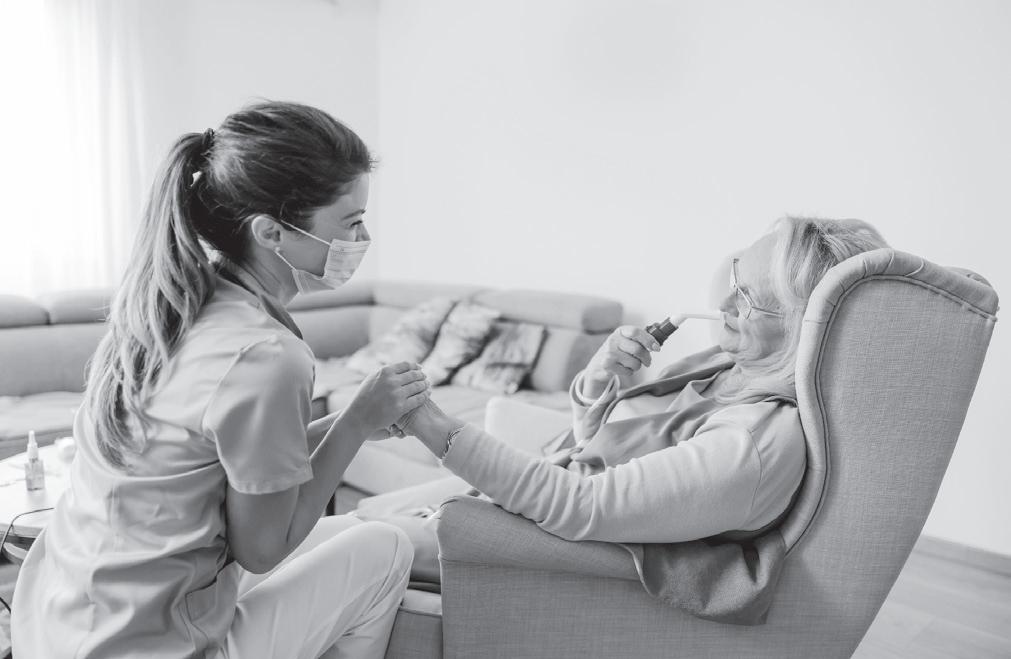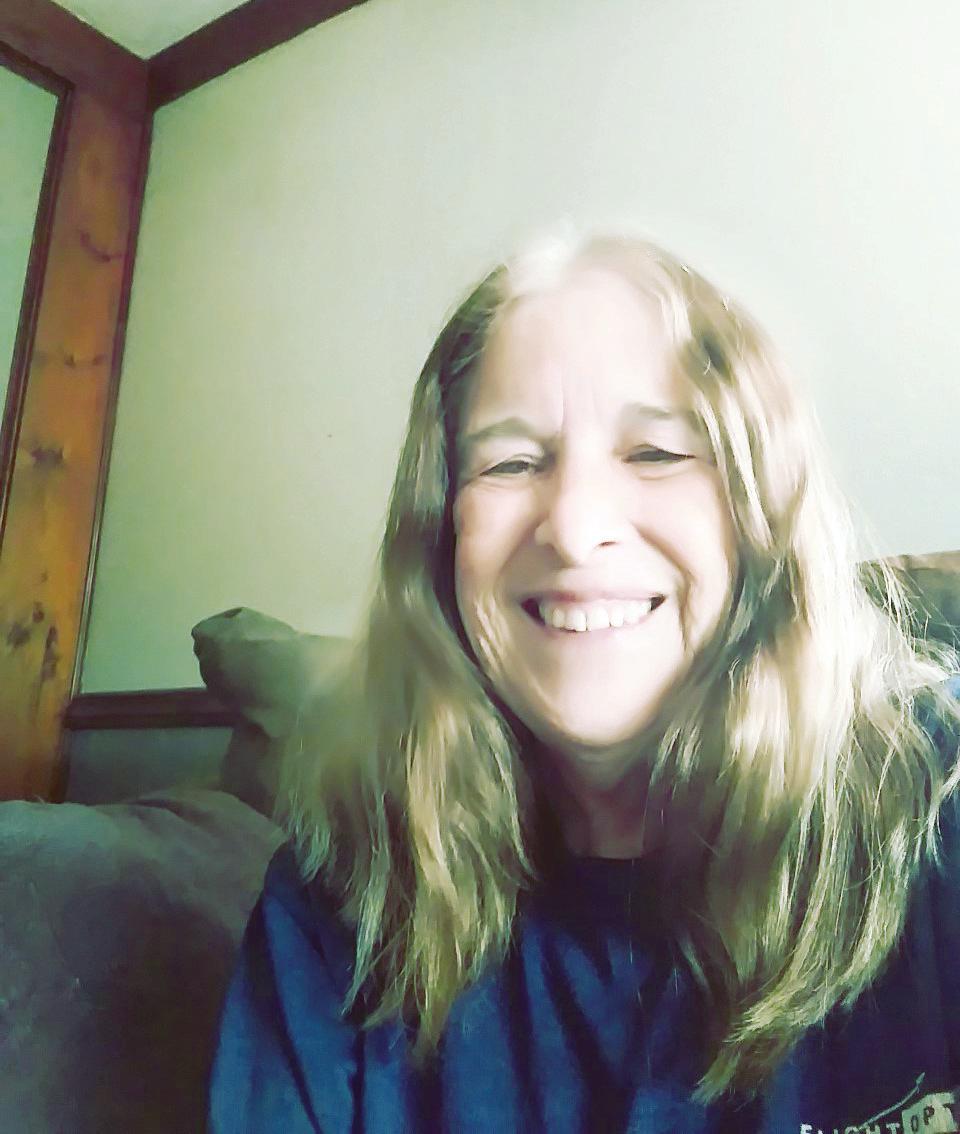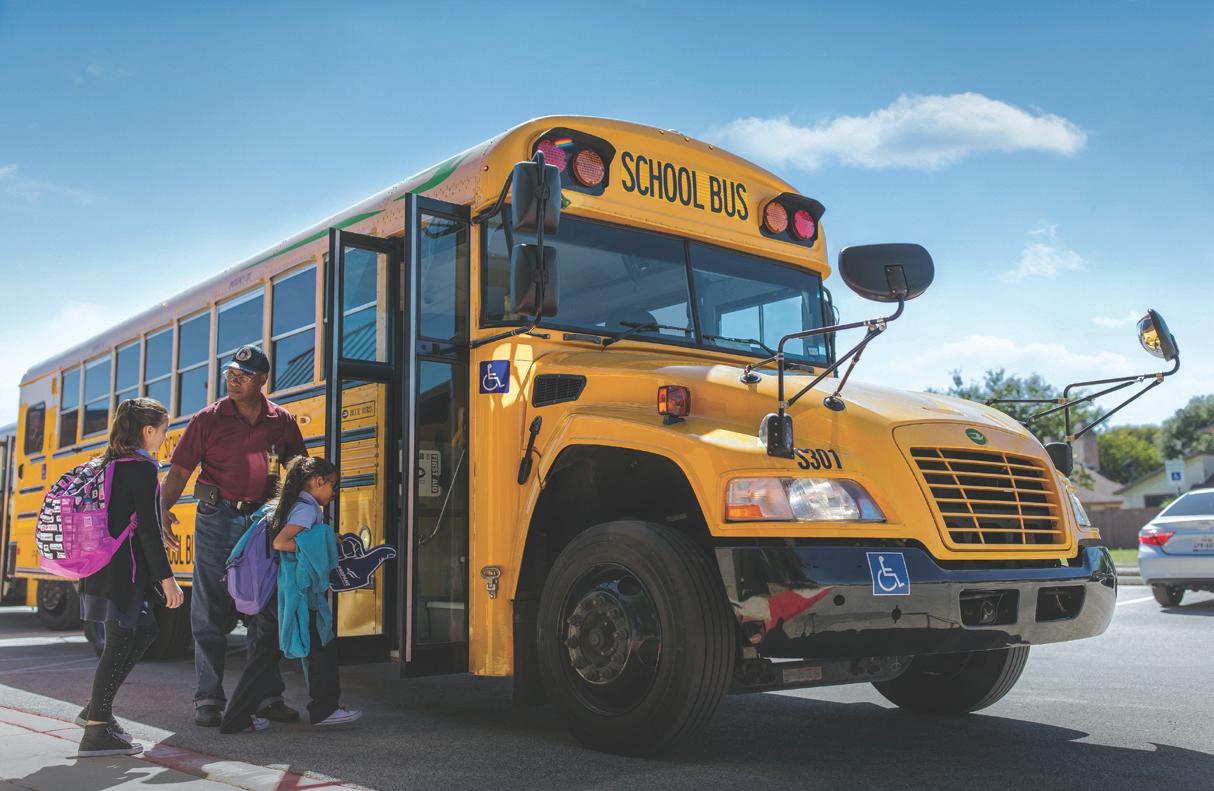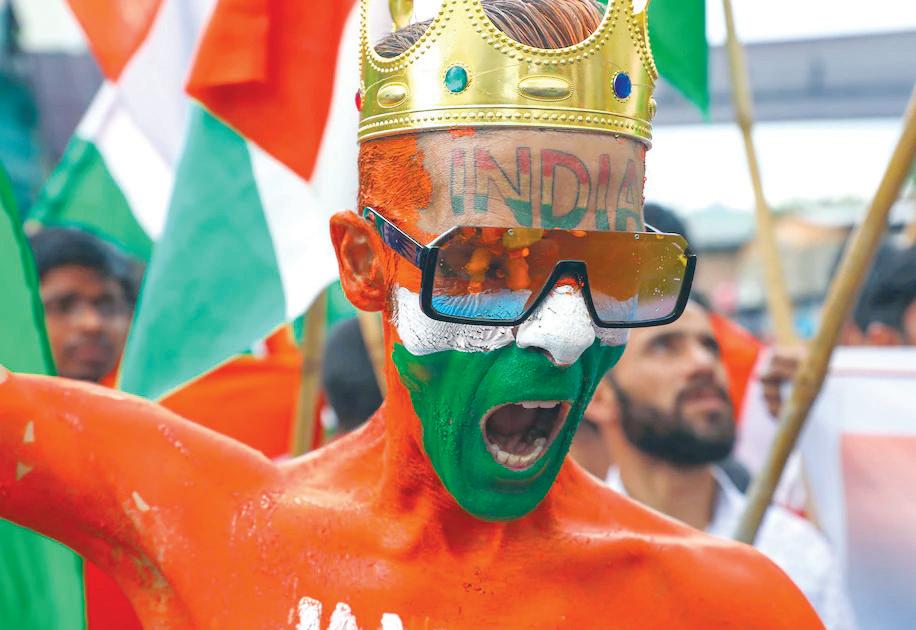
10 minute read
Sleepless And Selfish
Humans help each other—it’s one of the foundations of civilized society. But a new study by scientists at the University of California, Berkeley, reveals that a lack of sleep blunts this fundamental human attribute, with real-world consequences.
Lack of sleep is known to be associated with an increased risk of cardiovascular disease, depression, diabetes, hypertension and overall mortality.
However, these new discoveries show that a lack of sleep also impairs our basic social conscience, making us withdraw our desire and willingness to help other people.
In one portion of the new study, the scientists showed that charitable giving in the week after the beginning of Daylight Saving Time, when residents of most states “spring forward” and lose one hour of their day, dropped by 10%—a decrease not seen in states that do not change their clocks or when states return to standard time in the fall. The study, led by UC Berkeley research scientist Eti Ben Simon and Matthew Walker, a UC Berkeley professor of psychology, adds to a growing body of evidence demonstrating that inadequate sleep not only harms the mental and physical well-being of an individual, but also compromises the bonds between individuals—and even the altruistic sentiment of an entire nation.
“Over the past 20 years, we have discovered a very intimate link between our sleep health and our mental health. Indeed, we’ve not been able to discover a single major psychiatric condition in which sleep is normal,” Walker said.
“But this new work demonstrates that a lack of sleep not only damages the health of an individual, but degrades social interactions between individuals and, furthermore, degrades the very fabric of human society itself. How we operate as a social species—and we are a social species—seems profoundly dependent on how much sleep we are getting.”
“We’re starting to see more and more studies, including this one, where the effects of sleep loss don’t just stop at the individual, but propagate to those around us,” said Ben Simon.
“If you’re not getting enough sleep, it doesn’t just hurt your own well-being, it hurts the well-being of your entire social circle, including strangers.”
Ben Simon, Walker and colleagues Raphael Vallat and Aubrey Rossi will publish their results August 23 in the open access journal PLOS Biology.
Walker is the director of the Center for Human Sleep Science. He and Ben Simon are members of the Helen Wills Neuroscience Institute at UC Berkeley. Sleeplessness dampens theory of mind network
The new report describes three separate studies that assessed the impact of sleep loss on people’s willingness to help others. In the first study, the scientists placed 24 healthy volunteers in a functional magnetic resonance imager (fMRI) to scan their brains after eight hours of sleep and after a night of no sleep.
They found that areas of the brain that form the theory of mind network, which is engaged when people empathize with others or try to understand other people’s wants and needs, were less active after a sleepless night.
“When we think about other people, this network engages and allows us to comprehend what other person’s needs are: What are they thinking about? Are they in pain? Do they need help?” Ben Simon said. (Continued On Page 23)
The Best And Worst Foods For Heart Health, According To Doctors
(Continued From Page 20)
Like quinoa, they can be effective when managing blood pressure and blood sugar levels due to their high amounts of fiber and potassium.”
Walnuts
Looking for something superspecific that will benefit the heart? Load up on walnuts. “Studies have shown that regular consumption of walnuts can decrease our LDL or ‘bad’ cholesterol,” explained registered dietitian nutritionistKylene Bogden.
The Worst Foods For Heart Health Unfortunately, with the good comes the bad — and sadly, there are some really delicious foods out there that aren’t great for your heart. They include: Processed meats can be really tasty (who doesn’t love a hot dog?) but they’re not very good for your heart.
“Consuming even small amounts can increase the risk of cardiovascular disease,” Aggarwal said. “Processed meats are often high in unhealthy saturated fats.
Even low-fat options tend to have high sodium levels, which can lead to high blood pressure.”
Cake, pies, cookies
Sorry, but all that sugar isn’t great for heart health. “These items are loaded with sugars as well as saturated and trans-fats,” Areces said.
“A high-sugar diet is detrimental for our health in many different ways including elevating triglycerides, insulin levels and contributing to being overweight or obesity, which in turn can lead to pre-diabetes or diabetes.
All of these are well-known risk factors for the development of heart disease.”
Fried foods
You may want to limit these treats on the cautious side of moderation. “Frying foods adds unhealthy trans fats and salt,” Aggarwal said. “Trans fats worsen a person’s cholesterol profile by raising the bad cholesterol (LDL) and lowering good cholesterol (HDL).
Study participants who consumed larger amounts of fried food had higher risk for death from coronary artery disease, as reported in The American Journal of Clinical Nutrition.” Foods labeled as reduced-fat or nofat
Sounds counter-intuitive, right? But according to Aggarwal, these types of foods aren’t great for heart health.
“Foods labeled as low or no-fat give the illusion of being healthy, but it may be just the opposite,” he said. “To maintain taste, as fat is taken out, more sugar is pumped in. Read food labels to see how many grams of sugar may have been added as a fat substitute.
Many types of natural fats are healthy so no-fat is not necessarily healthier! Refined sugars and carbohydrates raise the risk of heart disease.” (Courtesy: https://www. yahoo.com/)
We Welcome Articles From Readers And The Community. Info@AustinSouth Asian.Com


22 Austin South Asian | September 2022
THEME: AWARD-WINNING DRAMAS
ACROSS
1. Radiant light 5. Ceiling prop 8. Sweatshirt attachment 12. Auricular 13. Lightly colored 14. Like a certain lass 15. Rotterdam or Singapore, e.g. 16. Greek god of love 17. Event host 18. *1960 Golden-Globe winner with Kirk Douglas 20. The Bee ____ 21. Rowed 22. Costa del ____ 23. *1922 Pulitzer-winning “Long Day’s Journey into Night” author 26. *James Cameron’s 1997 Oscar-winner 30. Steal 31. “Killers of the Flower Moon” tribal members 34. All’s opposite 35. *2021 “royal” Emmy winner 37. “One Fish Two Fish ____ Fish...” 38. More eccentric 39. Assistant 40. Expels 42. Before, old-fashioned 43. Consummate professional, in music 45. Mid-body narrowing, pl. 47. Feather glue 48. Library offerings 50. Cry like a baby 52. *”The ____”, 1972 mafia Oscar winner 56. Jeopardy, not the game 57. Type of molding 58. This location 59. Full of blood vessels 60. Christian of haute-couture 61. Suite cleaner 62. Mountain goat terrain 63. D.C. bigwig 64. Middle of March
DOWN 1. Brewer’s perennials 2. Perching place 3. Italian money 4. Type of local tax 5. Travesty 6. Not silently 7. Loch ____ 8. *2012 Emmy-winning espionage thriller 9. Fairy tale opener 10. Half of binary code, pl. 11. Yellow #5, e.g. 13. Bits of wisdom 14. Fathered 19. Bird of prey’s weapon 22. Female sib 23. ____’s razor 24. Waterwheel 25. Horace’s poem 26. Danson and Kennedy 27. Lymph “containers” 28. Lacking vigor 29. Roman counterpart of Greek Demeter 32. *Ben Affleck’s 2012 Golden Globe best drama winner 33. Wow 36. *2000-2003 White House Emmy winner, with The 38. Port city in Japan 40. Get it wrong 41. BOGO offer 44. Total amount 46. Isthmus, pl. 48. Railroad car undercarriage 49. Theater, to Socrates 50. Samuel Adams, e.g. 51. Operatic solo 52. Hermes and Apollo 53. Cabbage amount 54. Great Lake 55. *Best Director Oscar-winner Warren Beatty’s 1981 film 56. Rubber substitute, acr.
Please email your sudoku answers to info@austinsouthasian.com. Name and photo of the inviduvidual with correct answer will be published in October 2022 issue.
Sudoku
To Advertise In ASA Call 512-828-6709

23 Austin South Asian | September 2022 Sleepless And Selfish: Lack Of Sleep Makes Us Less Generous
(Continued From Page 21)
“However, this network was markedly impaired when individuals were sleep deprived. It’s as though these parts of the brain fail to respond when we are trying to interact with other people after not getting enough sleep.”
In a second study, they tracked more than 100 people online over three or four nights. During this time, the researchers measured the quality of their sleep—how long they slept, how many times they woke up—and then assessed their desire to help others, such as holding an elevator door open for someone else, volunteering or helping an injured stranger on the street.
“Here, we found that a decrease in the quality of someone’s sleep from one night to the next predicted a significant decrease in the desire to help other people from one subsequent day to the next,” Ben Simon said.
“Those with poor sleep the night prior were the ones that reported being less willing and keen to help others the following day.” The third part of the study involved mining a database of 3 million charitable donations in the United States between 2001 and 2016. Did
the number of donations change after the transition to Daylight Saving Time and the potential loss of an hour of sleep? They found a 10% drop in donations. This same dent in compassionate gift-giving was not seen in regions of the country that did not change their clocks. “Even a very modest ‘dose’ of sleep deprivation—here, just the loss of one single hour of sleep opportunity linked to daylight sav-
ing time—has a very measurable and very real impact on people’s generosity and, therefore, how we function as a connected society,” Walker said.
“When people lose one hour of sleep, there’s a clear hit on our innate human kindness and our motivation to help other people in need.”
An earlier study by Walker and
Ben Simon showed that sleep deprivation forced people to socially withdraw and become more socially isolated. A lack of sleep also increased their feelings of loneliness. Worse still, when those sleepdeprived individuals interacted with other people, they spread their loneliness to those other individuals, almost like a virus, Walker said.
“Looking at the big picture, we’re starting to see that a lack of sleep results in a quite asocial and, from a helping perspective, antisocial individual, which has manifold consequences to how we live together as a social species,” he said.
“A lack of sleep makes people less empathetic, less generous, more socially withdrawn, and it’s infectious—there is contagion of loneliness.”

August 2022 Sudoku Answer

Ms. Prathyusha Thatiparthy

“The realization that the quantity and quality of sleep affects an entire society, caused by an impairment in prosocial behavior, may provide insights into our societal state of affairs in the present day,” Walker added.
This finding also offers a novel approach to improving these specific aspects of our society.
“Promoting sleep, rather than shaming people for sleeping enough, could very palpably help shape the social bonds we all experience every day,” Ben Simon said.
“Sleep, it turns out, is an incredible lubricant to prosocial, connected, empathic, kind and generous human behavior. In these divisive times, if there was ever a need for a strong, prosocial lubricant to enable the very best version of ourselves within society, now seems to be it,” said Walker, author of the international bestseller, Why We Sleep. “Sleep may be a wonderful ingredient that enables the alacrity of helping between human beings.”
“Sleep is essential for all aspects of our physical, mental and emotional lives,” Ben Simon said. “When sleep is undervalued in society, not only do we get sleep-deprived doctors, nurses and students, but we also suffer from unkind and less empathic interactions on a daily basis.”
In developed countries, more than half of all people report getting insufficient sleep during the work week.
“It is time as a society to abandon the idea that sleep is unnecessary or a waste and, without feeling embarrassed, start getting the sleep that we need,” she added. “It is the best form of kindness we can offer ourselves, as well as the people around us.”
(Courtesy: https://neurosciencenews.com/)










